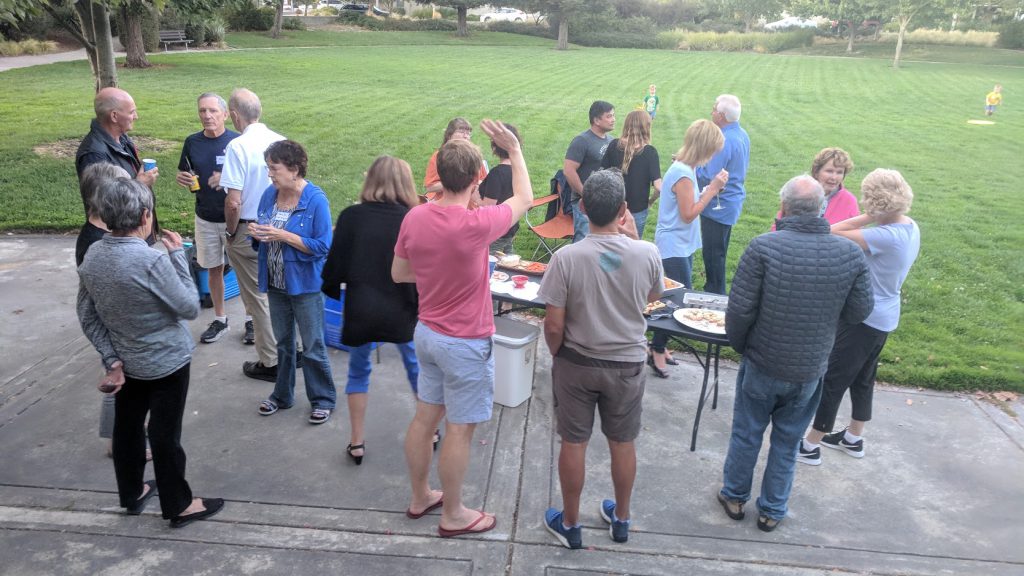This article is one of a series of posts that emerged due to the 2017 wildfires that ravaged California wine country near our home.
Communities usually come together when an emergency hits. There’s safety in numbers and assisting one another increases the ability of all to survive a hardship.
The time to build a community is not when disaster is knocking on your door. The time to do that is now! Getting to know your neighbors builds a bond of trust with people you may rely on in the future when an emergency occurs.
Who in your neighborhood needs extra assistance to evacuate? Who is that person loading up a car with your neighbors belongings? Who nearby has a specialty tool you need to make an emergency repair? These sorts of questions can only be answered by getting to know the folks in your neighborhood.
When we moved to Sonoma my wife and I looked around for a neighborhood group that organized happy hours or other events. There was none, so we started our own. We spread some flyers around the neighborhood that said we’d be in our front driveway with a snack and some wine and anyone else was willing to join us. This low level of effort led to monthly events with sometimes 50 people showing up. We continue to host them to this day.

An online neighborhood email and contact list was developed to help organize things. How does this tie into emergencies? When the Sonoma wildfires were raging and threatening the city many neighbors evacuated. They used to contact list to keep in touch to ensure those who remained were safe and that our neighborhood was still there. Thankfully, we all were.
Personal emergencies could be a factor as well. Two neighbors left early one morning for a flight to Europe. At the airport they had a sinking suspicion that they had failed to close their garage door when they left. They contacted my wife who walked a short distance to their house to confirm they had indeed left it open and quickly closed it for them. Personal emergency avoided, they were able to enjoy their vacation.
So reach out to your neighbors, get to know them, organize a contact list and perhaps bring more of them on board with some common sense emergency preparedness steps.

Pingback: Emergency Lessons Learned | Robert Barron